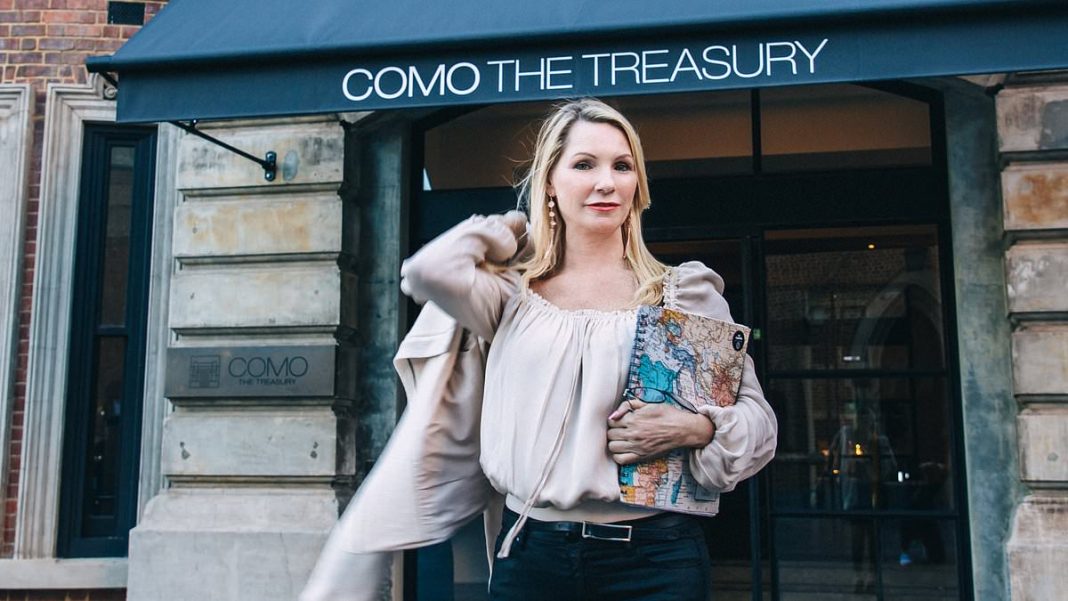- Expert Louanne Ward shares the signs your lover is likely to cheat
You’ve met a new partner and you’re in the first flush of love. But how can you tell if they’re really The One or whether, deep down, they don’t truly believe in monogamy? Intriguingly, relationship expert Louanne Ward, from Perth, Australia, believes there are ways to predict a likely cheater. Over 20 years as a certified matchmaker, with her own successful agency, she’s seen the signs and worked out the patterns that often point to infidelity down the line.
And with one in three Australians admitting in a 2024 survey to either cheating or thinking about cheating, the likelihood of dating a two-timer is higher than you think.
It’s by no means a given, but if your partner ticks any of these five boxes, she says be wary: they may well have a roving eye…
1. They’ve got a high ‘body count’
It’s not a very woke phrase and some people don’t like asking, but the reality is someone who has had many sexual partners, or lots of ‘hook-ups’ involving sex with no emotional connection, may be more prone to seek variety or struggle with long-term exclusivity.
This doesn’t mean they’re incapable of commitment, but it could indicate a higher risk. By contrast, someone who’s been in a long-term relationship before – with no cheating! – is a safer bet.
To uncover this risk, ask your partner: What’s your view of one-night stands?
2. One or both of their parents was unfaithful
It sounds counter-intuitive, but people who grew up in a home where a parent cheated are more likely to view infidelity as an acceptable practice than those who didn’t. They’re likely to see it as less harmful and more inevitable because it’s been normalised in their formative years.
Chat to your boyfriend or girlfriend about their childhood home and what kind of marriage their parents had, and take note!
Ask your partner these questions: Did infidelity ever occur in your parents’ relationship? How did that influence your views on loyalty?
3. They have a history of cheating
Not rocket science, this one, but certainly backed up by science. One US study from 2017 found those who were unfaithful in one relationship had three times the odds of being unfaithful in the next, compared to those who embraced monogamy.
A new love who tells you he cheated in the past, and shrugs it off, should ring alarm bells. And if you were the Other Woman (or man) and they left her (or him) for you, then how surprised can you really be if they do the same to you?
Ask your partner these questions: Have you ever been unfaithful in a relationship? What led to that decision, and how do you feel about it now?
4. They’ve got an ‘avoidant attachment style’
In the mid-20th century, British psychoanalyst John Bowlby identified the ‘attachment styles’ we learn as infants, that are now seen as key to understanding how people relate to romantic partners.
Avoidantly attached people shun emotional closeness and intimacy, and often struggle with commitment. They often fear that dependence on someone else will lead to disappointment and loss.
If your potential partner often cancels plans, finds it hard to talk about feelings, has ghosted you in the past and then come back (known as ‘zombie-ing’), is unempathetic or distrustful of others, they may be avoidantly attached.
A lack of bonding at a deeper level means they don’t feel responsible for the feelings of others – and won’t see cheating as the deep betrayal you see it as.
Ask your partner this question: Do you ever feel the need to disconnect and spend periods of time alone for no real reason?
5. They’re overly-impulsive
There’s nothing wrong with a bit of spontaneity, especially if it’s romantic in nature. But that’s very different from someone who’s at the mercy of their every emotion or takes risky decisions on a whim. If they’re prone to outbursts of anger or they overreact to the slightest setback, if they seem to act on impulse and don’t care what people think, then the chances of infidelity rise.
Ask your partner this question: Do you think it’s possible to stay sexually attracted to the same person for a long period of time?
To nip infidelity in the bud, draw up a ‘relationship agreement’
Seeing one or more of these ‘predictors’ in a partner doesn’t guarantee they’ll be unfaithful, of course. Instead, view them as red flags and use them to inform your overall perspective on the relationship. Talk to your partner about how you feel and why you think they’re at higher risk of cheating.
Or go one better and ask to draw up a ‘relationship agreement’ that helps both partners feel secure and respected.
An agreement like this is a mutual understanding of what you want the relationship to look like to ensure it’s healthy and happy. Think of it as a way to keep your sex life thriving and to manage temptations that might arise elsewhere.
It’s not a binding contract, or a set of rules, but a way to help prevent misunderstandings and conflicts by ensuring both partners are on the same page when it comes to fidelity.
Here are some ideas for your relationship agreement.
1. We’ll have regular check-ins
We agree to schedule regular discussions about our sexual and emotional needs, especially as life changes – for example, if we have kids or if work becomes stressful. These check-ins will help us stay connected and ensure we’re both feeling fulfilled.
2. We’ll change up our sex life
We agree that as we grow individually, our needs might change. Let’s commit to discussing any new desires that arise, without any judgement. This will stop our sex life becoming repetitive and keep our relationship strong.
3. We won’t judge each other’s fantasies
What if we create a safe space where we can talk about our fantasies? Just because we discuss them doesn’t mean we have to act on them. Sometimes, just talking about them is enough. By having this agreement, we prevent these thoughts from turning into something that could harm our relationship.
4. We’ll have ‘pre-infidelity discussions’
Let’s agree to be open if one of us feels a strong attraction to someone else. We could talk about it before it becomes an issue, which could help prevent infidelity and keep our trust in each other intact.
5. We’ll set boundaries when it comes to ex-partners
We could agree on certain boundaries that make us both feel secure – for example how we interact with ex-partners or friends who might pose a temptation. This way, we respect each other’s feelings and maintain trust.









